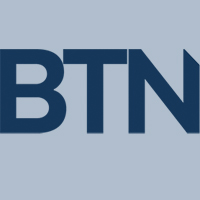
Filter in or out as many as 200 cities, as well as hotel and car rental class and meals of the day and watch as the per-diem calculator automatically adjusts per diems to your program. Drill down into cost breakdowns and export the results.
Le Meridien Etoile – 4 October, 2019
London Marriott Hotel Regents Park – 7 October, 2019
Westin Georgetown Hotel – October 11, 2019
It’s the beginning of RFP season for many travel buyers putting together hotel programs with negotiated rates. For the past several years, suppliers have had the upper hand, but this year, buyers are gaining back some power, according to a report from industry consultant Bjorn Hanson called U.S. Corporate Hotel Rate Negotiations for 2020 Forecast.
Almost every year since 2011, the market has favored suppliers because of increasing hotel occupancy and forecasted increases in average daily rate “that for many of the years were higher than the average daily rate increases realized,” Hanson said. The report notes that while U.S. ADR increased by less than 3 percent for 2016 through 2018, the projected price increases during negotiation periods were higher. In 2016, the forecast was growth between 5.75 percent and 7 percent. In 2017, it was between 3 percent and 4 percent, and in 2018, it was between 2.5 percent and 3.5 percent. “Therefore, many buyers believe they ‘overpaid.'”
For 2020, the ADR forecast is an increase between 1 percent and 1.5 percent, based on STR’s performance reporting and on forecasts from STR, CBRE Hotels and PwC. That growth is slower than inflation, Hanson pointed out. And as ADR growth slows, buyers gain leverage.
Hanson’s report noted that buyers are starting negotiations with suggested increases of between 1.5 percent and 2 percent, while suppliers are asking for increases between 3 percent and 5 percent. Hanson estimates corporate travel buyers’ negotiated rates for 2020 will rise between 1.5 percent and 2.5 percent.
Hanson also noted that buyers are trying to limit lodging cost increases. One focus is the universally derided resort fee. Buyers have become more alert to this type of surcharge and “are requiring that contract wording prohibit charging any fee that is not related to a requested extra service.” They also are concentrating hotel use into fewer hotels to strengthen their bargaining power with higher volumes, are including more select-service and limited-service hotels in addition to or in place of upper-upscale and full-service or luxury hotels, are increasingly enforcing corporate travel policies and hotel compliance and are auditing employee expense reports.
Sellers will retain some power for negotiations of 2020 rates, however, as occupancy still is at a near high. Hanson expects it to land between 66 percent and 66.5 percent for 2019 and remain steady for 2020. In addition, group demand has increased more than expected this year, which is favorable for hotels with meeting space.
Other factors that will impact negotiations this year include buyers’ concerns about published “member rates,” nonrefundable rates on brand websites that are lower than negotiated rates, and the increased desire for Airbnb and other homesharing options. Hanson said buyers have more choices in this area. The three mega travel management companies—American Express Global Business Travel, BCD Travel and CWT—partnered with Airbnb in 2016, and many homesharing brands are increasingly focusing on corporate business: Startups like Domio, Sonder, Lyric and Mint House have started chasing the space with Airbnb for Work.
Hanson bases his report and estimates on interviews with industry executives and corporate travel executives, on analysis of industry financial data, on press releases and on information available on hotel and brand websites.
RELATED: 2019 rate negotiation forecast
CoStar Group—a real estate information, analytics and online marketplace company—plans to acquire…
Dan Wiser has joined Tripbam as director of business development. Based in Dallas, he will develop…
Former American Express executive Shane Berry joined Mint House in July as chief customer officer and…
